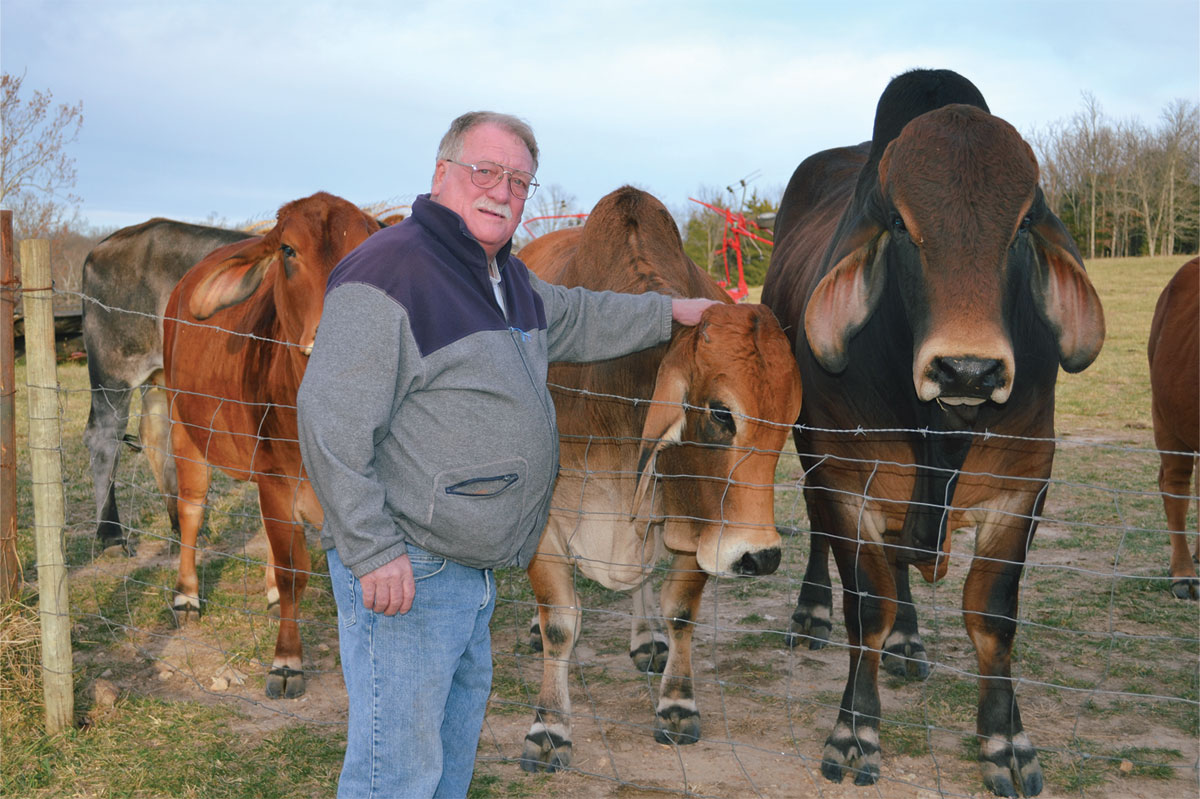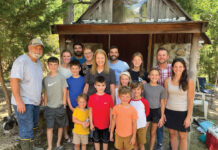
Del Downs incorporates Brahman and Waygu into his own line of crossbred cattle
Del Downs was born in Ava, Mo., but left as a youngster to grow up in Washington state, then spent 20 years in Wyoming with his wife, who passed away a few years ago.
At the urging of his brother, who had also returned to the area, Del decided it was time to come home to Missouri. Over the years out West, he worked in the designing and manufacturing of elite custom-built mobile homes used by sports and movie stars as on-site trailers. Still, the Ozarks-born native was also drawn back to agriculture and has been working with Brahmas for years, beginning with polled grays back in the 1970s. Today, in Douglas County, he has both Brahman and Japanese Waygu cattle, raising them on 180 acres close to his home.
“Brahman have an undeserved bad reputation in this area,” Del explained while visiting with some of the animals he refers to as gentle giants. “I imagine it comes, in part from their size and their performance on the rodeo circuit as the bulls the cowboys ride but like any other animal, so much of their behavior depends on the way they are raised and trained.”
A single call on Del’s part brings a number of the big Brahmans running to the fence, where they seem happy to get a pat and a head rub from their owner. That includes a particularly large yet friendly bull that Del simply calls “The Big Guy.”
“Brahman have made such a mark on American agriculture as they have a registered cross-breed with every other major cattle breed such as Brangus, Santa Gertrudis Limousin and Beefmaster.” And now, Del is working to cross-breed Brahman with Waygu.
“The Brahmans are a naturally polled breed and have a higher percentage of butter fat in their milk. The Brahman cows also have greater longevity, often continuing to breed five to seven years longer than many other breeds. They’ve done so well with cross-breeding that I hope to enhance the Brahman as a beef animal by crossing it with the grass-fed Waygu, which is a prime beef breed.
“The Waygu are a Japanese breed, discovered by the American military right after World War II. They have a lower level of fat and a lower cholesterol level than most other breeds and it is a national animal in Japan. Until about five years ago, they were not even allowed to export them out of the country. Now with embryo transplants in recent years, that ban has been lifted.”
Del bas been able to purchase his cattle close to home.
“The Waygu I have here, I purchased in western Missouri. They are definitely a growing breed in the U.S. today. The polled Brahman, on the other hand, have already put their foothold in American agriculture with their success in various crossbreeding programs.
“I work with registered polled Red Brahman, which are a rare breed. I’ve traveled all over – Oregon, Texas, Oklahoma and Arkansas – to find the Brahman I want and to bring them to Missouri. The Brahman are naturally a fine-boned, medium-framed animal. And while they are not particularly known for their beef yield, I’m working on a crossbreed that retains the high yield of the Waygu while also enhancing the bone mass and frame of the Brahman.”
Del admits to being self-educated in his crossbreeding efforts through study and practical experience.
“I’ve done a lot of reading on the Internet, studying up on both breeds, seeing what is possible,” the retired construction designer concluded with a smile. “Like so many others, my retirement supports my farming habit and that’s just fine with me.”






